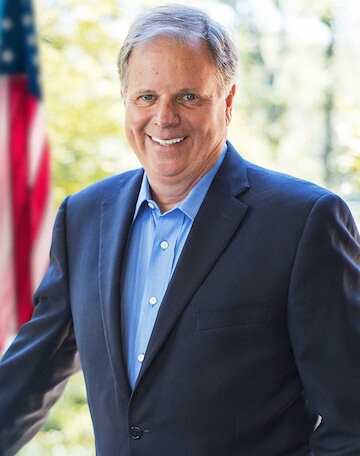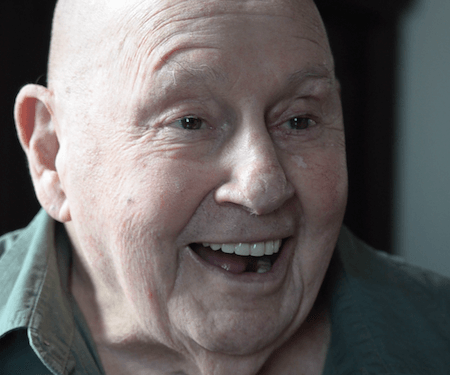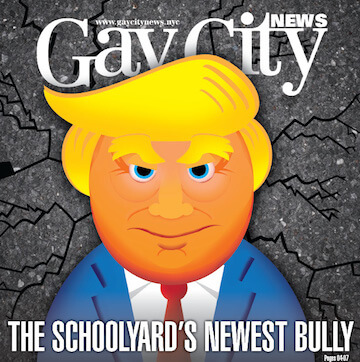North Carolina tells the tale of close ties between the fate of the Democratic Party and the LGBT community. Queers are the reason Democrats have a fighting chance in this red state.
Charlotte is a banking and financial capital, a hub of colleges and universities, and a beacon of liberalism in a state run by Republicans who hug tight their Christian brethren.
In February, the city passed an LGBT rights law that included protections for transgender folks, including the explicit right to access bathrooms consistent with their gender identity. In March, the State Legislature retaliated by rushing through a sweeping law barring any city from providing the sort of protections Charlotte proposed by overriding the right of any municipality to enact non-discrimination ordinances that exceed the standard set by state law. You want gay rights in North Carolina, persuade the Republican Legislature!
THE LONG VIEW
In the process, the GOP upped the ante on transgender rights by mandating that people use only those public bathrooms that correspond to their gender as designated on their birth certificate.
Oh, and not incidentally, the law also forbids cities from raising the local minimum wage higher than the state’s.
This open declaration of war caused the LGBT community to erupt, and North Carolina Democrats, invigorated by the outrage, went on the offense. Pictures soon popped up on social media showing how a transgender man with a beard and mustache could be compelled to use the women’s room under the new law.
Before long, corporate America offered a helping hand and musicians — Bruce Springsteen, Ringo Starr, and longtime LGBT ally friend Cyndi Lauper, among them — announced a boycott of the the state.
Even the staid National Collegiate Athletic Association cancelled championship matches. In 2017, there will be no NCAA basketball March Madness in North Carolina nor will the women’s lacrosse championship rounds take place there. At the professional level, the NBA moved next year’s all-star game out of North Carolina. These moves represent a milestone in the growing fight against homophobia in sports.
The Tar Heel State is suddenly no longer a sure thing for the Christian right; the Democrats have a popular issue. Republican militancy has transformed North Carolina into a battleground state. Democrats are fighting to oust the GOP governor, Pat McCrory, as well as US Senator Richard Burr, also a Republican. And political pundits, including Nate Silver’s outfit, fivethirtyeight.com, agree that Donald Trump cannot win the White House without snaring North Carolina’s 15 electoral votes.
If cultural issues surrounding LGBT equality and dignity were defining the political scene in North Carolina through much of the year, things changed dramatically on September 20, when a plainclothes police officer, Brentley Vinson, shot and killed Keith Lamont Scott, a disabled black man. The police said he had pointed a gun; the family said he was carrying a book. The city braced for demonstrations but later admitted too few police were called in, and after two days the National Guard was activated by Governor McCrory.
With polling in the state showing it too close to call — for president, governor, and senator — the Republicans, who are branding demonstrations in Charlotte as “rioting,” hope that a law and order theme will tip matters back in their favor.
Out of left field, Donald Trump charged, “Drugs are a very big factor” in the Charlotte disturbances. And, of course, he pledged to be strong in response, saying “There is no compassion in tolerating lawless conduct. Crime and violence is an attack on the poor, and will never be accepted in a Trump administration.” During this week’s debate, he defended his tough rhetoric by saying that the poor bear the brunt of crime and violence — and that minorities would be better off under his administration! Safe to say that demonstrators in Charlotte will see Trump’s words for what they are — an effort to whip up the backlash against communities of color.
Trump inserted himself into the Charlotte picture shortly after whining that the alleged Chelsea bomber, wounded in a shoot-out with authorities, will receive “room service” and “amazing hospitalization.” The quick arrest in the New York-New Jersey case undercut his fear-mongering about Islam by demonstrating that cops are managing the risks of terrorism.
The increasingly unsettled political climate in North Carolina poses risks, both for Charlotte’s progressive leaders and Democrats generally. The city’s mayor is a woman and its police chief is black (as is Vinson, the plainclothes officer who shot Scott). Some demonstrators have called on both to resign, a dynamic at odds with the city’s image earlier in the year as a center of cosmopolitan diversity and inclusiveness.
Hillary Clinton and the Democrats further down the ticket are counting on a big turnout in both the African-American and LGBT communities (and it bears reminding that there are overlaps between the two, with, for example, the Trans and Queer People of Color Collective, or TQPoCC, being an active player in the recent demonstrations). If both groups of voters can be mobilized, the tide toward the Democrats can be sustained all the way to victory. In a sign of continued optimism, it was Hillary Clinton who headed to North Carolina after this week’s debate — not Donald Trump, for whom the state is much more a must-win.
If Clinton and her down-ballot colleagues can hold together what is now essentially the Obama coalition, North Carolina can have a progressive day on November 8. And then, the “progressives” will have to turn to healing their own internal divisions and making good on the promises their lofty ideals hold so dear.


































